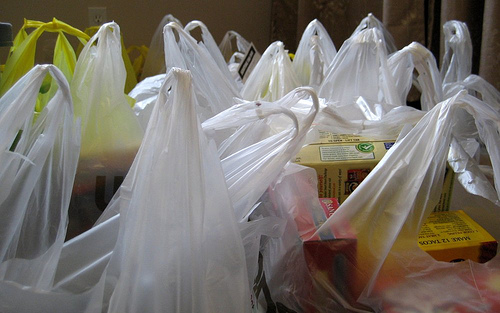Plastic bags are the genital warts of litter — they're incredibly widespread, nearly impossible to get rid of, and can lead to much worse problems down the line. The only thing that works is prevention — i.e. not using them in the first place. But the plastics industry doesn't take too kindly to that. Here's a sampling of the tactics the industry has used to keep people from weaning themselves off plastic bags:
- Lobbying (to the tune of millions of dollars) against legislation that would ban or put fees on plastic bags at the local level.
- Trying to trade bag recycling plants for the promise that there will be no bag-banning laws. Trying to recycle plastic bags tends to just break recycling machines, so this isn't a very good deal.
- Filing lawsuits against manufacturers of reusable bags.
- Filing lawsuits against local governments that ban or limit plastic bags.
- Spreading misinformation about the dangers of reusable bags, i.e. that they can contain bacteria.
The good news is that, in places where local legislation has managed to escape the plastic-mongerers, bans and restrictions on plastic bag use are really really effective. (It's the Pap smear of … oh never mind.) A 15-cent bag fee in Ireland cut plastic bag use by 90 percent. D.C. has a much smaller fee, only five cents, but that still dropped consumption from more than 22 million bags to only 3 million per month. China cut plastic bag use by two-thirds in a year, saving the equivalent of 11.7 million barrels of oil. And the measures are popular, with everyone but the plastics industry; 25 percent of the world's population lives somewhere that has restricted bag use. Portland just banned them on Monday! Take that, plastic goons!




